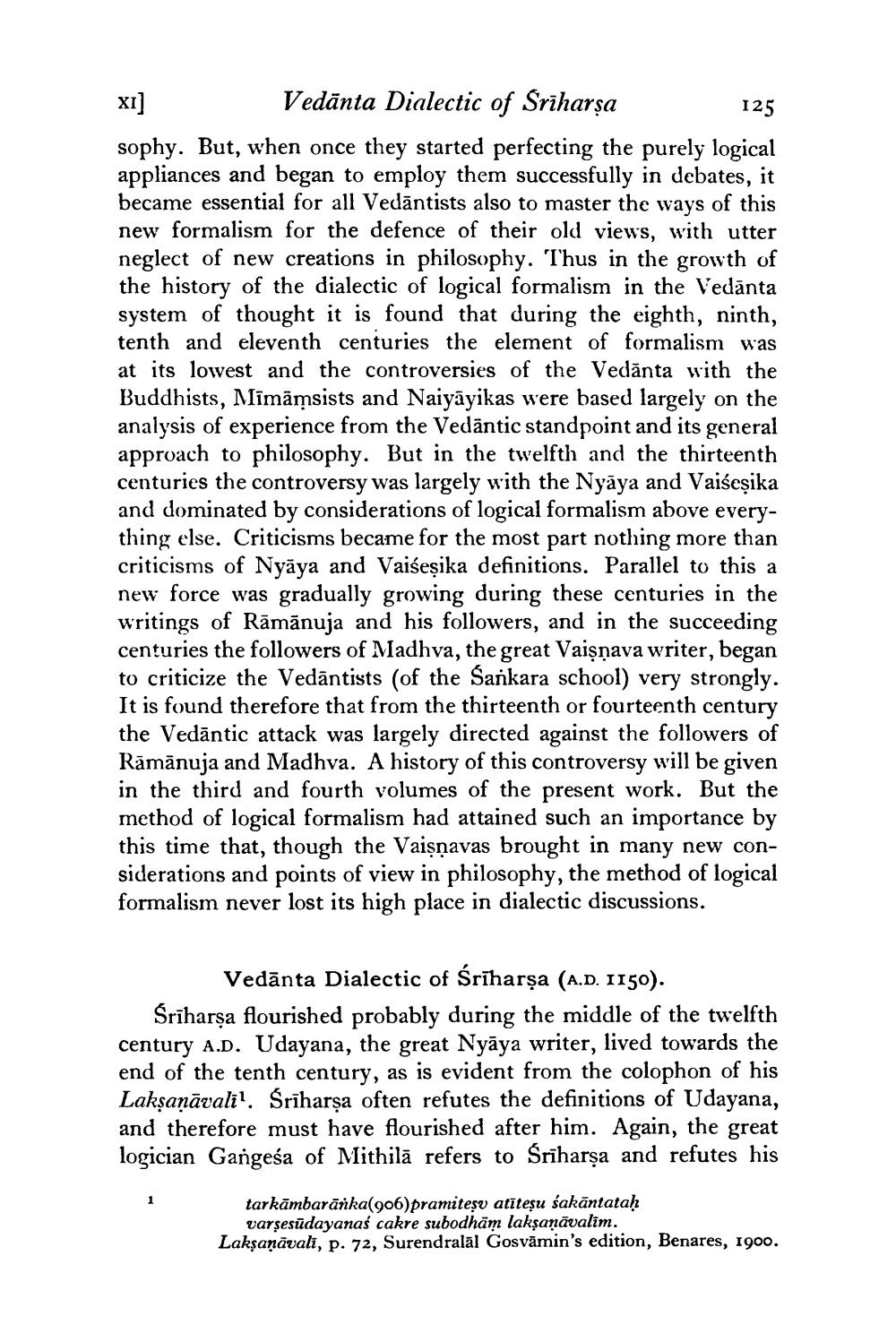________________
XI]
Vedanta Dialectic of Sriharṣa
125
sophy. But, when once they started perfecting the purely logical appliances and began to employ them successfully in debates, it became essential for all Vedāntists also to master the ways of this new formalism for the defence of their old views, with utter neglect of new creations in philosophy. Thus in the growth of the history of the dialectic of logical formalism in the Vedanta system of thought it is found that during the eighth, ninth, tenth and eleventh centuries the element of formalism was at its lowest and the controversies of the Vedanta with the Buddhists, Mīmāmsists and Naiyāyikas were based largely on the analysis of experience from the Vedantic standpoint and its general approach to philosophy. But in the twelfth and the thirteenth centuries the controversy was largely with the Nyāya and Vaiśeṣika and dominated by considerations of logical formalism above everything else. Criticisms became for the most part nothing more than criticisms of Nyāya and Vaiśeṣika definitions. Parallel to this a new force was gradually growing during these centuries in the writings of Rāmānuja and his followers, and in the succeeding centuries the followers of Madhva, the great Vaisnava writer, began to criticize the Vedantists (of the Sankara school) very strongly. It is found therefore that from the thirteenth or fourteenth century the Vedantic attack was largely directed against the followers of Rāmānuja and Madhva. A history of this controversy will be given in the third and fourth volumes of the present work. But the method of logical formalism had attained such an importance by this time that, though the Vaisnavas brought in many new considerations and points of view in philosophy, the method of logical formalism never lost its high place in dialectic discussions.
Vedanta Dialectic of Śrīharṣa (A.D. 1150).
Śrīharṣa flourished probably during the middle of the twelfth century A.D. Udayana, the great Nyaya writer, lived towards the end of the tenth century, as is evident from the colophon of his Lakṣaṇāvalī1. Śrīharṣa often refutes the definitions of Udayana, and therefore must have flourished after him. Again, the great logician Gangeśa of Mithila refers to Śrīharṣa and refutes his
1
tarkāmbarānka(906)pramiteṣv atīteṣu sakāntataḥ
varṣesudayanaś cakre subodhām lakṣaṇāvalīm.
Lakṣaṇāvali, p. 72, Surendralal Gosvāmin's edition, Benares, 1900.




